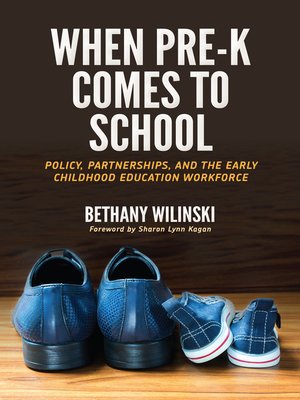When Pre-K Comes to School
ebook ∣ Policy, Partnerships, and the Early Childhood Education Workforce · Early Childhood Education Series
By Bethany Wilinski

Sign up to save your library
With an OverDrive account, you can save your favorite libraries for at-a-glance information about availability. Find out more about OverDrive accounts.
Find this title in Libby, the library reading app by OverDrive.



Search for a digital library with this title
Title found at these libraries:
| Library Name | Distance |
|---|---|
| Loading... |
When Pre-K Comes to School traces what happens—for institutions and teachers—when a school district and community ECE centers partner to provide public pre-K. Wilinski examines policy implementation across diverse sites—a private part-day preschool, a corporate childcare center, and a public elementary school. She demonstrates how pre-K partnerships create opportunities but also considerable constraints for the institutions and teachers involved. Though teachers are required to comply with the same policy mandates, their compensation and access to resources varies greatly. This book calls for policies and practices that will work better for teachers, which, in turn, will work better for children. The book's unique, insider perspective on how policy is actually enacted in schools provides important insight into what communities and policymakers should consider when creating pre-K policies.
Book Features:
- An in-depth examination of teachers' work across settings and situated within a changing, broader policy context.
- Evidence that public pre-K partnerships have serious and sometimes negative consequences for teachers and institutions.
- A focus on the experience of teachers who are critical to the success of pre-K.
- Interviews with pre-K teachers and state policymakers.
- Recommendations for pre-K policy that is more beneficial to teachers, institutions, and families.
"Absolutely essential and mind-shifting reading for those crafting prekindergarten policies and programs."
—From the Foreword by Sharon Lynn Kagan, Teachers College, Columbia University







